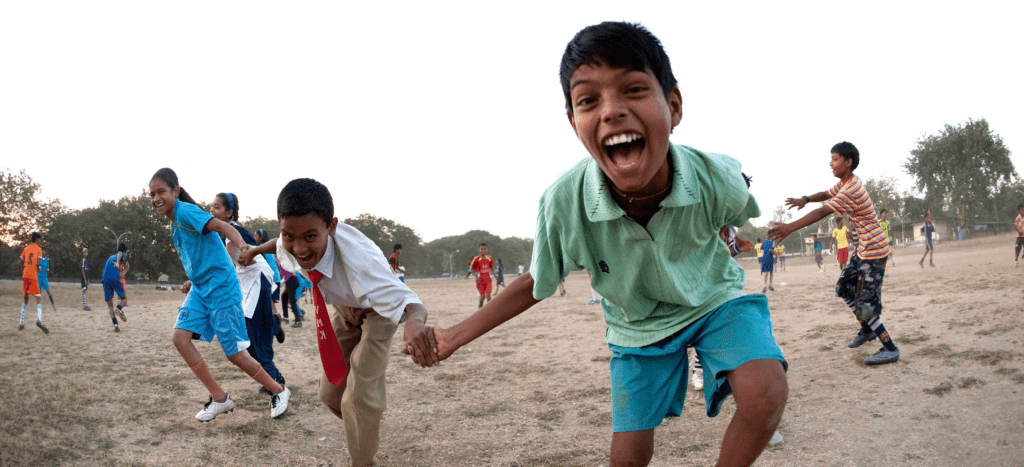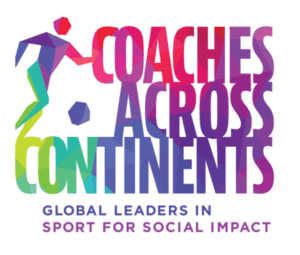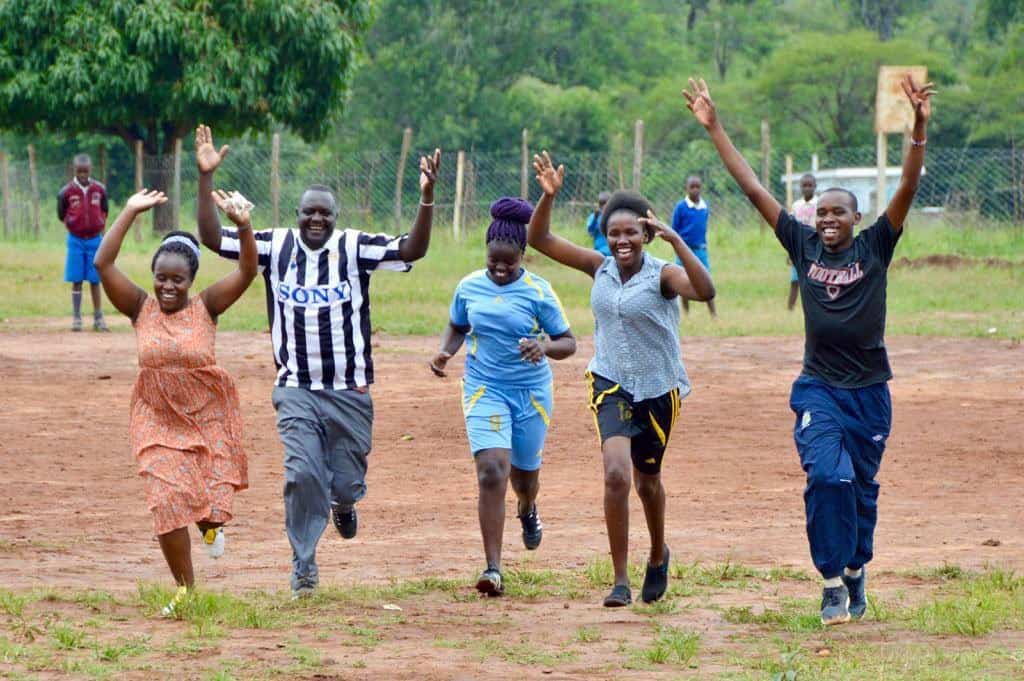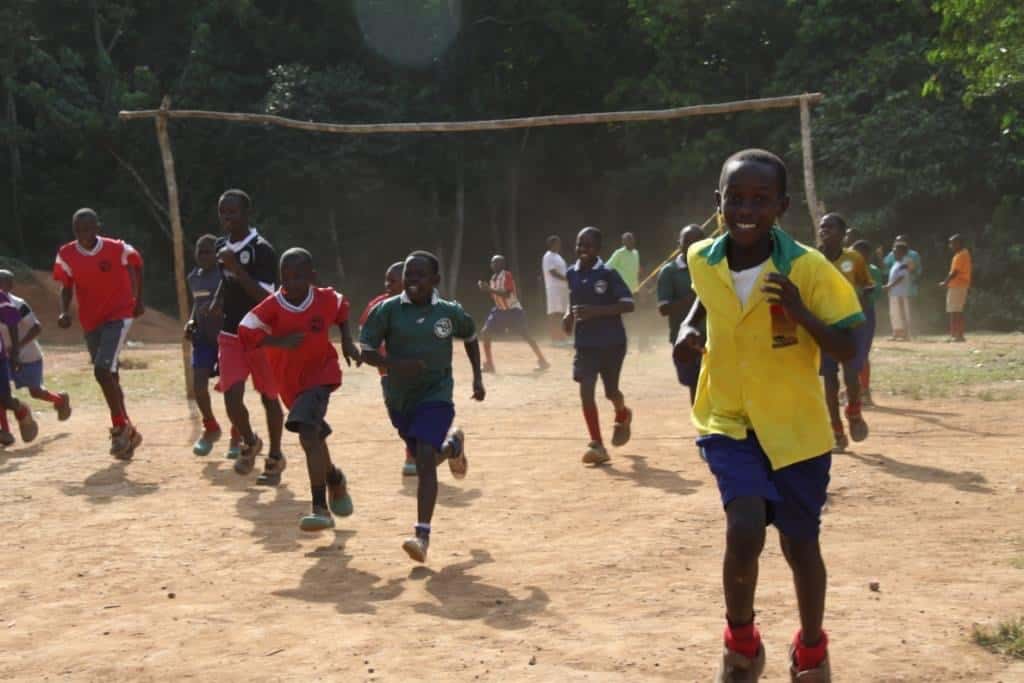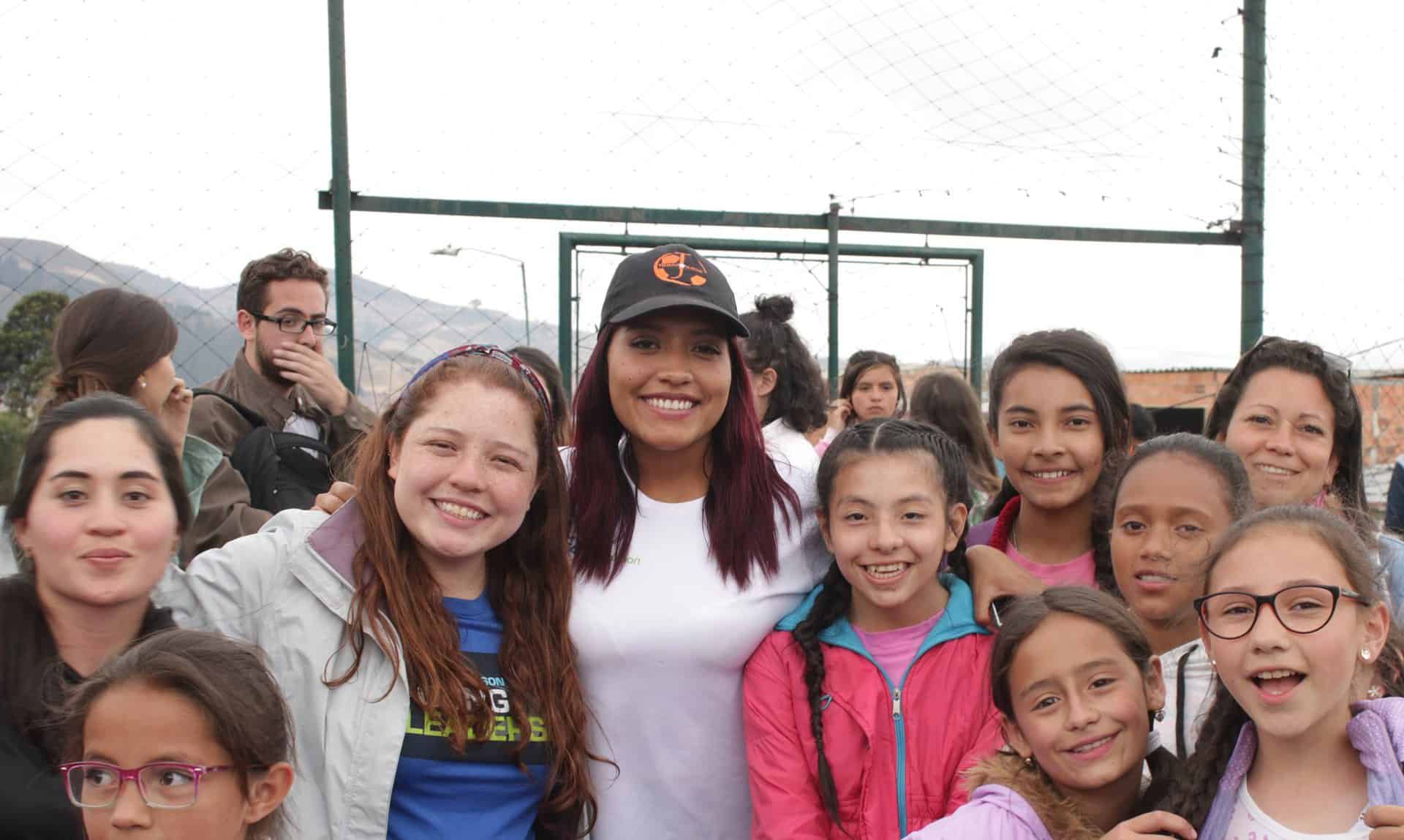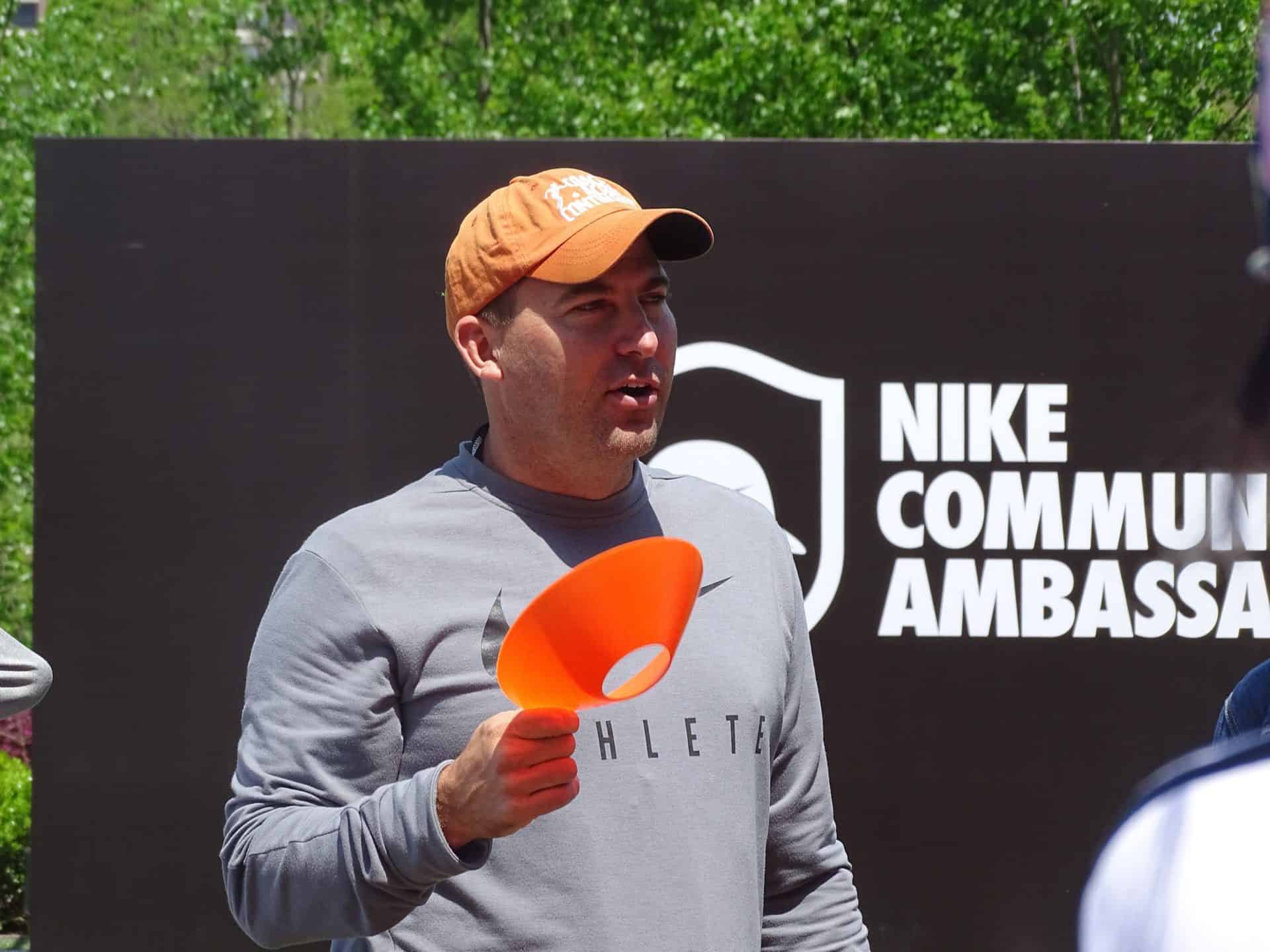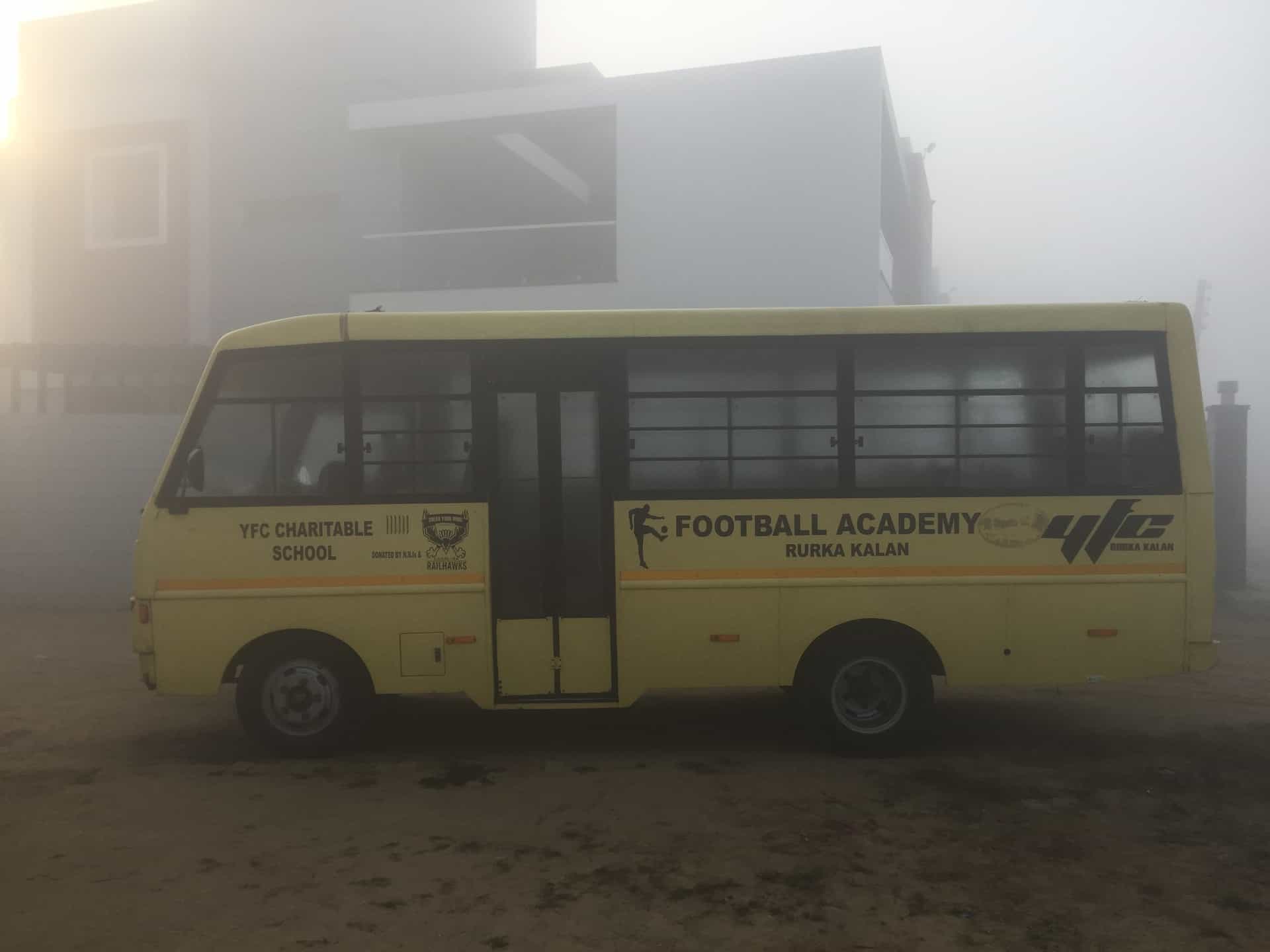Guest Blog- Sarah Huxley, PhD research student with the Open University.
‘Fun’ is a tricky, illusive and bouncy concept. Is it a sensation? Is it something you can create, or something that creates you? What places enable ‘having fun’? Is writing about fun, fun? Welcome to my world.
I am a PhD research student with the interdisciplinary research centre of RUMPUS at the Open University, and these are the types of thoughts that fill my head. We have recently started a collaboration with Coaches Across Continents (CAC) to explore, experience and understand what ‘fun’ means and does (its roles) in the context of CAC’s educational initiatives. I’ll be researching fun as a partially embedded researcher: this means participating in their staff skype meetings, running around ‘on field’ (probably out of breath) during their educational sessions; in order to experience if and how opportunities for fun arise. The research endeavour will by its very nature be a process of co-creation.
In particular, I’ll be looking and reflecting upon fun in the context of CAC’s active ‘Self Directed Learning’ approach – an approach embedded in ‘education outside the classroom’ and ‘purposeful play’. ‘Self-Directed learning’ was described to me by one staff member as “honouring that the individual – who is developing – who is learning in this world, is the expert of their experience.” According to interviews and organisational documents, Self-Directed Learning is a question-based methodology that offers an alternative to didactic classroom-based practices of learning. But more than this, it also confronts what ‘knowledge’ and ‘development’ (personal or social) intrinsically can be. CAC continually ask participants/players to think of these concepts in terms of diversity; challenging the assumptions and biases they bring to their communities and vice versa; and that we are all learners in motion, constantly being re shaped by the world around us, as well as if we choose, doing the reshaping.
Play and fun in CAC’s world are often used interchangeably and integral to its educational enterprise. At this stage in the research process, all I can say is that CAC’s view of ‘Purposeful Play’ is provocative and builds on values of choice. For example, one staff member in seeking to explain what Purposeful Play means, used the analogy of a Scandinavian playground he had heard of, whereby all the objects can be freely moved by players. In doing so, the “freedom of movement in that type of playground [provides] a world that pushes back at your learning, and you are not being confined by this pre-determined idea of this is how the slide is going to be…you get to play around. I don’t have to do any of the things that someone else has already done. From that the idea that play becomes more purpose driven: the play is more expressive of you as an individual, whereas it may be in a more traditional playground that you are not expressing yourself. You are just going up the slide, going across the monkey bars and repeat. Play with that bit of purpose is what points in a more positive direction.” This analogy suggests that CAC’s ‘on-field’ sessions are in a way a playground for all ages. There is a lot more teasing out to be done of the relationship and attributes that are ascribed to play and fun, but for now, there is plenty to slip and slide through.
For CAC, fun and play are a fundamental aspect of a progressive learning experience. This research will examine this claim. Firstly, by exploring the meanings of fun for different coaches (educators, mentors, youth leaders) in different cultures and contexts, and then secondly by turning to look at purposes (what does fun do/enable?) and why.
By the way, did I mention I have never played football?
If you are interested to learn more about the research as it progresses, or indeed have some reflections or provocations of your own, please do reach out: sarah.huxley@open.ac.uk or @AidHoover.
